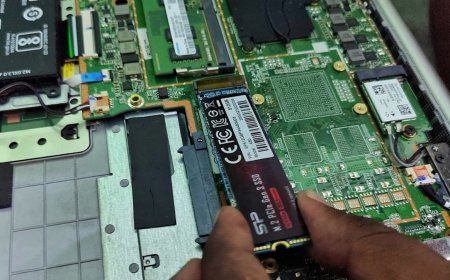How to Find Oakland Trumpet Expert Tonguing Lessons
How to Find Oakland Trumpet Expert Tonguing Lessons Mastering the art of trumpet tonguing is one of the most critical yet often overlooked aspects of brass performance. Whether you're a beginner taking your first breaths through a mouthpiece or an intermediate player striving for professional-level articulation, precise tonguing technique transforms your sound from hesitant to heroic. In Oakland,
How to Find Oakland Trumpet Expert Tonguing Lessons
Mastering the art of trumpet tonguing is one of the most critical yet often overlooked aspects of brass performance. Whether you're a beginner taking your first breaths through a mouthpiece or an intermediate player striving for professional-level articulation, precise tonguing technique transforms your sound from hesitant to heroic. In Oakland, California—a city rich in musical heritage and home to a vibrant community of jazz, classical, and contemporary musicians—finding a true expert in trumpet tonguing can be the difference between stagnation and breakthrough.
This guide is designed for musicians in the East Bay and beyond who are serious about refining their articulation. It goes beyond simple “trumpet lessons near me” searches to reveal a strategic, multi-layered approach to identifying and connecting with Oakland-based instructors who specialize in advanced tonguing technique. You’ll learn how to evaluate credentials, recognize authentic expertise, leverage local networks, and access resources that most beginners never discover. By the end of this guide, you’ll not only know where to find the right teacher—you’ll understand why certain instructors stand out and how to assess their methods for long-term musical growth.
Step-by-Step Guide
Step 1: Define Your Tonguing Goals
Before searching for a teacher, clarify what you want to achieve with your tonguing. Tonguing isn’t just about starting notes—it’s about clarity, speed, consistency, dynamic control, and musical expression. Ask yourself:
- Are you struggling with fast passages in jazz standards like “A Night in Tunisia”?
- Do your staccato notes lack punch in orchestral excerpts?
- Are you inconsistent when switching between legato and marcato articulations?
- Do you experience fatigue or tension in your tongue during extended playing?
Pinpointing your specific challenges helps you identify instructors who specialize in those areas. For example, if you're focused on jazz improvisation, you’ll want someone who understands the nuances of double and triple tonguing in swing and bebop contexts. If you're preparing for college auditions, look for teachers experienced with conservatory-level repertoire like Haydn, Hummel, or Arutunian.
Step 2: Research Oakland-Based Trumpet Instructors with Tonguing Specialization
Start by compiling a list of trumpet teachers in Oakland and surrounding areas. Use search terms like:
- “Oakland trumpet teacher tonguing technique”
- “East Bay jazz trumpet instructor articulation”
- “Professional trumpet coach Oakland advanced tonguing”
Don’t settle for the first few results. Dig deeper. Visit the websites of local music schools, conservatories, and private studios. Look for bios that mention:
- Specialization in articulation or tongue technique
- Experience with orchestral or jazz ensembles
- Training under renowned trumpet pedagogues (e.g., Claude Gordon, Carmine Caruso, or James Stamp)
- Publications, workshops, or masterclasses on tonguing
Some notable Oakland-area institutions with strong brass programs include:
- East Bay Center for the Performing Arts
- California Jazz Conservatory (Berkeley, just across the bay)
- University of California, Berkeley Extension (music courses)
- Local private studios run by professional performers
Focus on instructors who don’t just offer “trumpet lessons” but explicitly reference articulation, tonguing, or embouchure mechanics in their curriculum.
Step 3: Analyze Instructor Credentials and Teaching Philosophy
Not all experienced players are effective teachers. Look for evidence of pedagogical training. A great tonguing instructor will explain technique using clear anatomical and physiological language—not just “do it this way.”
Ask yourself:
- Do they reference tongue placement (tip, blade, or middle)?
- Do they discuss air support as a partner to tonguing?
- Do they use visual aids, mirrors, or video analysis?
- Do they tailor exercises to individual physical anatomy (e.g., tongue size, dental structure)?
Red flags include teachers who say things like “Just tongue harder” or “Practice more.” These are generic responses that lack technical depth. The right instructor will break down tonguing into components: syllables (ta, ka, da, tu, ku), air speed, tongue arch, rebound timing, and coordination with breath.
Search for instructors who have studied under masters of the Caruso method, Gordon’s “Daily Drills,” or Stamp’s “The Art of Trumpet Playing.” These methodologies are deeply rooted in tonguing science and are frequently referenced by top-tier educators.
Step 4: Evaluate Teaching Environment and Materials
Visit the studio or observe a lesson if possible. A serious tonguing instructor will have:
- A collection of articulation exercises (not just etudes)
- Metronomes, recording devices, and mirrors for real-time feedback
- Customized practice routines based on student needs
- Progress tracking tools (e.g., speed charts, audio comparisons)
Ask to see samples of their tonguing curriculum. Do they use:
- “Ta-ka-ta-ka” drills for double tonguing?
- “Ta-ka-ti-ka” for triple tonguing?
- Dynamic crescendo-decrescendo tonguing exercises?
- Isolation drills for tongue relaxation?
These are signs of a systematic, science-backed approach. Avoid teachers who rely solely on repertoire-based practice without dedicated articulation work.
Step 5: Connect with the Local Music Community
Oakland’s music scene thrives on personal networks. Attend live performances at venues like The New Parish, Yoshi’s, or the Oakland Museum of California’s jazz nights. Talk to trumpet players after shows. Ask:
- “Who taught you to tongue cleanly in fast passages?”
- “Do you know anyone who specializes in articulation?”
- “Were you ever stuck on tonguing and found a teacher who changed everything?”
Join local Facebook groups like “Oakland Musicians Network,” “Bay Area Jazz Players,” or “East Bay Brass Ensemble.” Post a specific question: “Looking for an Oakland trumpet teacher who specializes in advanced tonguing techniques—any recommendations?”
Word-of-mouth referrals from active performers are often more reliable than online directories. A teacher who’s recommended by a professional jazz trumpeter who’s played with the Oakland Symphony or toured with a major band is likely to have deep, practical expertise.
Step 6: Schedule Consultation Lessons
Most reputable instructors offer a 20–30 minute introductory session, often at a reduced rate or free. Use this to assess:
- How they diagnose your current tonguing
- Whether they listen more than they talk
- How they adjust their teaching to your physicality
- Whether they provide immediate, actionable feedback
During the lesson, play a challenging passage you struggle with—perhaps the opening of “Can’t Help Falling in Love” in a jazz style, or the third movement of the Haydn Trumpet Concerto. Observe how the teacher responds. Do they:
- Ask you to slow down and isolate the tonguing pattern?
- Use a syllable like “duh” to relax your tongue?
- Adjust your air support before correcting your tongue?
- Provide a written exercise to practice before the next lesson?
If the response is vague or overly generic, keep looking. The right teacher will treat your tonguing issue as a technical puzzle—not a character flaw.
Step 7: Assess Long-Term Compatibility
Learning advanced tonguing is a marathon, not a sprint. You need a teacher who:
- Encourages patience and consistency
- Tracks progress over weeks, not days
- Adjusts exercises as you improve
- Understands the psychological aspect of overcoming articulation anxiety
Ask about their typical student timeline. How long does it take an intermediate player to master clean double tonguing? Do they assign daily tonguing drills? Do they incorporate breathing coordination? A teacher who emphasizes daily 5–10 minute articulation warm-ups is far more likely to deliver results than one who only addresses tonguing when you bring up a difficult passage.
Step 8: Consider Online Options with Local Expertise
If in-person lessons are limited by schedule or location, consider remote instruction from Oakland-based teachers who offer video lessons. Many top instructors now use platforms like Zoom with screen-sharing and slow-motion playback.
Look for teachers who:
- Record your playing and annotate it with timestamps
- Use side-angle and front-angle video to show tongue position
- Share audio examples of correct vs. incorrect tonguing
- Provide downloadable PDFs of exercises
Even remotely, prioritize instructors who are physically based in Oakland. They’re more likely to understand the local musical culture, have connections to regional ensembles, and be familiar with the audition requirements of Bay Area schools like San Francisco Conservatory or CalArts.
Best Practices
Practice Tonguing Daily, Not Just Before Lessons
Articulation is a motor skill. Like typing or playing piano scales, it requires consistent repetition. Aim for 10–15 minutes of focused tonguing practice every day, separate from your regular warm-up. Use a metronome. Start slow—60 BPM—and increase by 5 BPM only when you can play cleanly for 30 seconds without tension.
Record Yourself Weekly
Audio and video recordings are your most powerful diagnostic tools. Compare your playing from week to week. Do your tongued notes sound more even? Is the attack cleaner? Are you avoiding “flutter tonguing” by accident? Self-assessment builds awareness and accelerates progress.
Focus on Tongue Relaxation, Not Force
Many players believe tonguing faster requires more pressure. The opposite is true. Elite trumpeters use minimal tongue movement. The tongue should act like a light valve—touching the roof of the mouth just behind the front teeth, then releasing instantly. Tension in the jaw or tongue causes fatigue and inconsistency. A good teacher will help you identify and eliminate unnecessary muscle engagement.
Combine Tonguing with Breathing Exercises
Tonguing is only half the equation. Air support must be continuous and controlled. Practice “tongue and breathe” drills: Tongue a single note, then immediately take a deep, silent breath without interrupting the airflow. Repeat. This trains your body to maintain air pressure while articulating—a hallmark of professional playing.
Use Syllables Strategically
Not all syllables work for everyone. “Ta” is common, but some players find “Da” or “Tu” more natural. Experiment under your teacher’s guidance. Avoid “K” sounds if they cause jaw tension. The goal is efficiency, not textbook perfection.
Don’t Ignore Warm-Ups
Many players skip articulation warm-ups. This is a mistake. Start each session with 2–3 minutes of slow, legato tonguing on long tones. This wakes up the tongue, calms the nervous system, and prepares the embouchure for precision.
Track Your Progress in a Journal
Keep a simple log:
- Date
- Exercise
- Tempo
- Number of clean repetitions
- Notes on tension or breakthroughs
Over time, you’ll see patterns—what works, what doesn’t, and how your body responds. This data is invaluable when working with a teacher.
Be Patient with Double and Triple Tonguing
These techniques take months, sometimes years, to master. Don’t rush. Focus on evenness before speed. A clean double-tongued passage at 80 BPM is better than a sloppy one at 120. Consistency trumps velocity every time.
Tools and Resources
Recommended Books
- The Art of Trumpet Playing by James Stamp – The foundational text on articulation mechanics and embouchure control.
- Trumpet Technique by Claude Gordon – Includes comprehensive tonguing drills and breathing coordination exercises.
- Caruso’s Six-Minute Trumpet Technique by Carmine Caruso – A cult favorite for developing muscle memory and tonguing precision.
- Trumpet Playing: The Complete Guide by James R. Thompson – Excellent chapter on articulation and tongue placement.
Online Platforms
- YouTube Channels: “Trumpet Lessons with John Holt,” “The Trumpet Channel,” “David Hickman Masterclasses.” Search for “double tonguing tutorial” or “trumpet articulation exercises.”
- SoundCloud and Bandcamp: Search for Oakland-based trumpet players. Listen to their recordings and note articulation clarity. Reach out to them for advice.
- MasterClass and ArtistWorks: While not Oakland-specific, these platforms offer lessons from world-class players like Wynton Marsalis and Chris Botti, who emphasize articulation.
Apps and Technology
- Metronome Apps: Pro Metronome (iOS), Metronome Beats (Android) – Essential for tonguing drills.
- SlowDown Audio: Lets you slow down recordings without changing pitch—great for transcribing solos and analyzing tonguing patterns.
- GarageBand or Audacity: Free tools to record and compare your progress.
- PracticeMate: A practice tracker app that lets you log daily tonguing exercises and set goals.
Local Resources in Oakland
- Jack London Square Music Store: Offers sheet music, method books, and often hosts local musician meetups.
- Oakland Public Library: Free access to OverDrive for digital music books and recordings.
- Bay Area Music Teachers Association (BAMTA): Directory of certified instructors; filter by brass and articulation specialties.
- Community Centers: Check out the Fruitvale Community Center or the Oakland Asian Cultural Center—they sometimes host free or low-cost brass workshops.
Workshops and Clinics
Keep an eye out for annual events like:
- California Jazz Conservatory’s Brass Masterclass Series
- Oakland Jazz Festival (often features artist clinics)
- East Bay Music Educators Conference
These events frequently feature guest artists who specialize in articulation and often offer open Q&A sessions. Even attending as an observer can provide invaluable insights.
Real Examples
Example 1: Marcus, 22, Jazz Student from West Oakland
Marcus had been playing trumpet for five years but couldn’t play fast bebop lines cleanly. He’d tried YouTube tutorials and local music stores, but nothing stuck. He found Rafael, a former member of the Oakland Symphony and a student of James Stamp, through a recommendation from his jazz band director.
Rafael diagnosed Marcus’s issue: he was using “ka” for double tonguing, which caused jaw tension. He switched Marcus to “tu-ku,” added a breathing coordination drill, and gave him a daily 8-minute articulation routine. Within three months, Marcus could play “A Night in Tunisia” at 160 BPM with clean articulation. He now teaches tonguing workshops at the California Jazz Conservatory.
Example 2: Lena, 45, Returning Musician from Piedmont
Lena picked up the trumpet again after 20 years. She struggled with inconsistent attacks and tongue fatigue. She found Elena, a private instructor in downtown Oakland who specializes in adult learners and biomechanics. Elena used a mirror to show Lena how her tongue was hitting too far back on the palate, causing muffled notes. They incorporated “light tongue” drills and diaphragmatic breathing. Within six weeks, Lena’s tone improved, and her tonguing became effortless. She now performs weekly at local cafes.
Example 3: Jamal, 17, High School Senior Preparing for Juilliard
Jamal needed to master triple tonguing for his audition repertoire. He searched for “Oakland trumpet teacher triple tonguing” and found Dr. Priya Mehta, a former Juilliard faculty member who now teaches privately in Rockridge. Dr. Mehta used a step-by-step approach: first, isolate “ta-ka-ti” at 60 BPM, then gradually add dynamics. She recorded his sessions and created a 30-day challenge. Jamal’s audition video, featuring flawless triple tonguing in the Hummel Concerto, earned him a full scholarship.
Example 4: The Oakland Youth Brass Ensemble
This ensemble, based in East Oakland, partners with local trumpet teachers to offer weekly articulation clinics. Their director, a graduate of the San Francisco Conservatory, developed a “Tongue Tracker” system where students log daily tonguing drills on a color-coded chart. Over 80% of students improved their articulation speed by 30% or more within one semester. Their success has made them a model for other youth programs in the Bay Area.
FAQs
How long does it take to improve trumpet tonguing?
With daily focused practice, most students notice improvement in 2–4 weeks. Clean double tonguing typically takes 3–6 months to become reliable. Triple tonguing can take 6–12 months. Consistency matters more than intensity.
Can I learn advanced tonguing without a teacher?
You can make progress on your own using books and videos, but a skilled teacher will prevent bad habits, correct physical tension, and tailor exercises to your anatomy. For advanced goals like jazz improvisation or orchestral auditions, professional guidance is essential.
What’s the difference between single, double, and triple tonguing?
Single tonguing uses one syllable (e.g., “ta-ta-ta”). Double tonguing alternates two syllables (e.g., “ta-ka-ta-ka”) for faster passages. Triple tonguing uses three syllables (e.g., “ta-ka-ti” or “ta-ta-ka”) for uneven rhythmic patterns. Each requires different tongue coordination and air support.
Is tongue position the same for everyone?
No. Tongue size, dental structure, and palate shape vary. A good teacher will adjust syllables and placement based on your individual anatomy—not force you into a “one-size-fits-all” model.
Why do I get tired when I tongue fast?
Most likely, you’re using too much pressure or tension in your tongue or jaw. True fast tonguing is a light, spring-like motion. If you’re fatiguing, your technique needs adjustment—not more practice.
Should I use “ta” or “da” for tonguing?
“Ta” is standard for clarity. “Da” is softer and often better for legato or lyrical passages. Experiment under guidance. The goal is evenness, not syllable purity.
Can tonguing issues be caused by my trumpet?
Not directly. However, a poorly maintained mouthpiece or leadpipe can affect airflow and make tonguing feel harder. Make sure your instrument is clean and properly fitted to your mouthpiece.
How do I know if my teacher is truly an expert in tonguing?
They should be able to explain the physiology of the tongue, reference established pedagogical methods, provide customized exercises, and demonstrate the technique themselves. If they can’t, they’re likely a generalist, not a specialist.
Are online lessons effective for tonguing?
Yes—if the teacher uses video analysis, slow-motion playback, and detailed feedback. Many Oakland-based instructors now offer high-quality remote lessons with results matching in-person instruction.
What’s the most common mistake beginners make with tonguing?
They focus on speed before clarity. They tense their jaw, use too much tongue, or forget to support with air. Slow, clean, and relaxed is always better than fast and sloppy.
Conclusion
Finding an Oakland trumpet expert who specializes in tonguing isn’t about finding the closest studio or the cheapest lesson. It’s about identifying someone who understands the biomechanics of articulation, has proven experience with advanced players, and can translate complex technique into clear, actionable steps tailored to your body and goals.
The journey to masterful tonguing is personal, technical, and deeply rewarding. It requires patience, consistent practice, and the right guidance. Oakland’s rich musical ecosystem offers more than enough talent to support your growth—if you know how to look.
Use this guide to move beyond surface-level searches. Engage with the community, analyze teaching methods, record your progress, and prioritize quality over convenience. The right teacher will not only fix your tonguing—they’ll unlock a new level of musical expression you didn’t know was possible.
Remember: Every great trumpet player was once a beginner struggling with a single note. What separates them is not talent alone, but the pursuit of precision—and the wisdom to find the right mentor along the way. Your breakthrough is closer than you think. Start your search today.





























